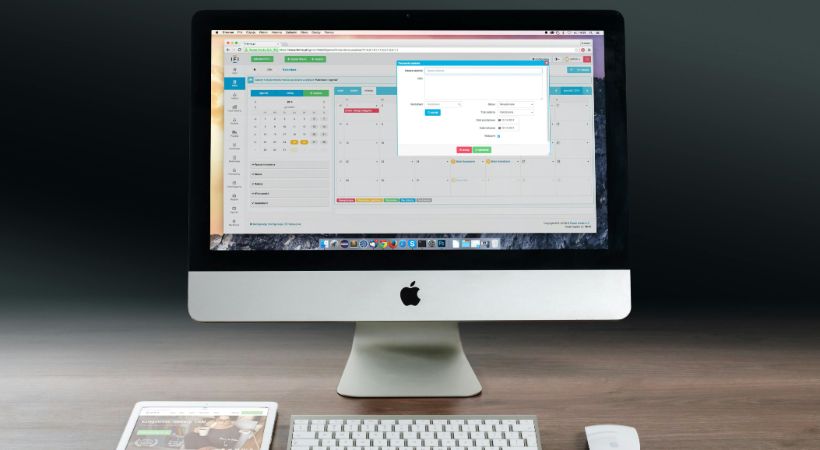A huge mistake that business owners make is investing in large websites full of information without considering how quickly the website will be able to operate.
When you invest in a website that runs slowly, you’re essentially paying for your potential customers to be annoyed at you.
We aren’t in the early 2000s anymore, and slow websites just won’t fly (though they never really did). If you want to beat your competitors and achieve better conversion rates, you need to make sure that your website isn’t operating at a snail’s pace.
At Blaze, we are tired of stumbling across slow-running websites, and it breaks our little marketing hearts to see so many lost conversions. Here is a guide for improving your website’s speed and, in turn, conversions.
What are Conversions?
For those who aren’t heavily involved in the marketing world, the word conversions likely means nothing to you.
Don’t worry; you’re not the only one!

When you set up a website, you usually determine a desired action you wish people visiting your site to complete.
Conversions can cover a range of actions, such as signing up for a service or sharing a blog post, but the most desired conversion is usually people buying a product.
When you invest so much money in a website, you want to see a return on your investment, and we want you to do the same. The last thing that you want after making major investments is performance issues. To achieve this, you will need to speed up your website’s loading time.
How Website Speed Can Affect Conversions
Research has shown that a one-second delay in page load time can cause a 7% loss in conversion rates. Can you imagine the impact of even slower pages?
As you can imagine, slow-loading sites can be incredibly frustrating for visitors in a world where everything is so on demand. They can even negatively impact how consumers see your business.
Unless you offer something incredibly unique, you are likely not the only online site offering your product or service, so people have alternative options.
With every passing year, attention spans are becoming shorter, and visitors simply won’t wait around for your site to work when they can just go to a different site.
With the growth of online shopping, your website will likely be a significant revenue stream for your company, so you want to ensure that it isn’t lagging behind.
Ways You Can Increase Your Website Speed
If reading how a slow website can impact your business has put the fear of God in you, it is likely that you are now considering all of the ways you can improve your website’s speed.
Because we like to think we know a little something about websites, or at least our development team certainly do, here are our tips for increasing your website speed.
Use a Good Host

The hosting provider you select for your website can have a huge impact on its performance.
We get it, if you have the option to pay lower monthly fees for your website, you are going to go down that route.
However, the money you save through choosing a cheaper provider may cost you more in the long run, as you could lose out on substantial profits.
Using cheap hosting services could lead to a poor-performing website. This is often because many of the cheaper hosting providers share resources between multiple websites, which accounts for the reduced speed.
There are good hosting solutions out there, but it can be difficult to trust Google ads and figure out which sites to trust.
Luckily for you, our lovely development team has given us the inside scoop on the best performance-focused hosting solutions, and they suggest Ionos as a great option.
So if you are looking for a recommendation you can trust, trust our development team because they have absolutely nothing to gain from the suggestion, other than some polite thank yous.
Optimise Your Images
Images are an incredibly important part of any website. Images are fantastic for bringing life to your site, as well as showcasing your products and services.
What you may not know is that larger images may actually decrease the loading speed of your site.
Many people neglect to consider this issue, but compressing the images on your website could actually make a huge difference to its speed.
There are a number of ways that you can reduce the size of your images. First of all, you could change the format of your images, converting your images to JPEG is highly recommended if you want less data on your site.
Don’t interpret this advice as being able to cut corners and improve your site by removing the images, as this will only remove the character from your website.

Limit External Links
There are some instances where using external links can be beneficial to the success of your website, such as providing a source for any claims that you have made.
However, using an excessive number of external links can actually slow your website down.
What you may not know is that when your page redirects to an external site, the HTTP request is prolonged. By minimising your redirects, you could significantly lower the loading time of your website.
If you are using a WordPress website, you could speed up your WordPress website by looking through your internal and external links and getting rid of any that are not necessary. WordPress can be a great tool, only if you know how to use it.
Minify Code
If you have already addressed the size of your images and your site is continuing to run slow, something else that you can address is your code.
Whether you’re using JavaScript, HTML or CSS, there is always the option to minify your code. This consists of getting rid of any unnecessary characters and other unneeded elements, which can reduce the size of your files.
If you are struggling to minify your code, there are plugins that you can use that can assist you during the process.
Reduce Plugins
Running a website can be difficult; we get it, we have heard our dev’ team’s complaints. So, it can be tempting to use plugins to make the website easier to manage.
Though using plugins might come with added convenience, having too many of them can actually have a huge impact on the speed of your website, as they create more functionalities that need to load.
Look at your website plugins and get rid of any unnecessary plugins, as this may drastically improve the speed of your site.

Regularly Test Your Website
It is important that you regularly test your website so that you can get a user perspective on how well it runs. Depending on the web hosting service that you use, you should get a report of your website’s metrics every month.
Be sure to test your website on different devices, so that you can get a true understanding of how well it works.
If you have made some of the suggested changes and you are still struggling with the speed of your website, you might have to, unfortunately, accept that it may be time for a new website.
Look, nobody likes facing the cost of a new website, but persistently supporting a website that is making you lose conversions is only going to cost you in the long run. Not only will you lose potential conversions, but your business may get a poor reputation because of your site.
Cut The Middleman With Blaze
From our advice, hopefully it is clear that we know something about this topic. If you are in need of a new website or a website refresh, our expert team is here to help.
Stop taking chances with unreliable web designers and get in contact with us to find out more about how we can elevate your website, or look at our case studies to see how we have helped other businesses reach their potential.


